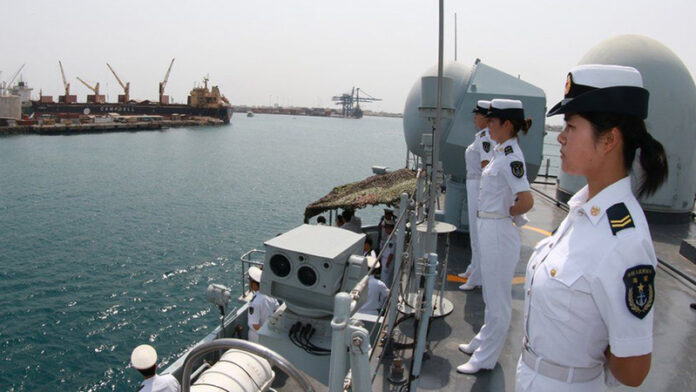Authors: Charles W. Dunne
Affiliations: Arab Center Washington DC, (Former US Diplomat -24 years of service- including Foreign Policy Adviser to the Director for Strategic Plans and Policy at the Joint Staff in the Pentagon between 2007-2008, and Director for Iraq at the National Security Council between 2005-2007)
Organization/Publisher: Arab Center Washington DC
Date/Place: Oct 27, 2021/ Washington, DC, USA
Type of Literature: Analysis
Word Count: 2800
Link: https://arabcenterdc.org/resource/the-complicated-nature-of-red-sea-geopolitics/
Keywords: The Red Sea, Geopolitics, Middle East, the Horn of Africa
Brief:
The Red Sea is a vital waterway to the global economy and its role is likely to increase in the upcoming decades. Geopolitically speaking, the region deserves unified policy considerations more than the traditional focus of American and European policymakers on the broader “Middle East”. Despite the Red Sea’s importance to international trade, instabilities and insecurities in the region may disrupt the smooth functioning of the global economy. While many factors contribute to insecurities in the Red Sea area, the central factor is proxy activities and rivalries by regional and global actors. The leading security problem of the Red Sea environs stems from piracy, especially on the Somalian coast, that has been successfully deterred by massive international naval operations since 2008. The war in Yemen which began as a political uprising in 2012 and has turned into a civil war has now become the leading source of piracy and instability in the region. The Saudi-Iranian rivalry for regional supremacy has worsened Yemen’s crisis, where Iran supports Yemen’s Houthi rebels while Saudi Arabia and the United Arab Emirates supports the existing government. The war in Yemen has created a massive humanitarian crisis in the country and has been posing threats to Red Sea shipping lines. Moreover, regional rivalries among the Gulf States have fueled political tensions along both Arabian and African coasts of the Red Sea. The longstanding deadlock between Saudi Arabia and Qatar escalated into hostile activities in 2017 when Riyadh took political boycott and economic blockade of Qatar, with UAE, Egypt, and Bahrain supporting the Saudis, and Turkey standing by Doha’s side. One of the immediate results of the regional political split was the rush among the dueling powers in search of friends, loyal clients, military posts, and commercial ports on the African coast of the Red Sea. The UAE established a military base at the Eritrean port of Assab in 2015 from which it launches both naval and airstrikes against Houthi forces in Yemen. In addition to the existing King Faisal Naval Base at Jeddah, the Saudi armed forces seized ports in al-Mokha and al-Khokha in Yemen in 2019 that expand its naval presence in the Red Sea. Meanwhile, Turkey and Qatar cooperated in the struggle for regional influence with Saudi Arabia and the UAE by increasing economic assistance and trade deals with the African Red Sea littoral states. Additionally, Turkey operates the Somalian Military training base in Mogadishu and signed an agreement with Sudan in 2017 for the re-establishment of Suakin Island, a former Ottoman harbor on the Red Sea coast. Iran has also sought to establish a permanent naval presence in the Red Sea and the Gulf of Aden to counter the Arab Gulf states and increase its influence/defend its interests in the region, though there is not confirmed success so far. In addition to the Yemen war, ongoing conflicts in Ethiopia’s Tigray region, Somalia, Sudan, and South Sudan have hosted the involvement of regional powers as mediators, including Saudi Arabia, Iran, the UAE, and Egypt competing with Turkey and Qatar for the influence, which could lead to new and more unpredictable developments. These rivalries among the Middle Eastern states have extended to political meddling in the region’s transitional politics in Somalia, Ethiopia, and Sudan. Saudi Arabia, UAE, and Egypt were all supporting military rule after the ousting of Sudan’s dictator Omar al-Bashir in 2019, while Turkey and Qatar tended to support a civilian-led transitional government. Instabilities in the Red Sea coastal states and ensuing security challenges to international trade, and the region’s high economic stakes for both the global and regional economies make the region in the top strategic interests of global powers which are already ensuring their military presence in the region along with their allies. Dozens of military posts and naval installations that belong to various global powers, including the United States, France, Italy, Russia, Japan, and China are operating in the Red Sea area. These rivalries ignite “instability and insecurity in an already fragile, volatile, and conflict-prone region” that pose threats to international shipping in the Red Sea.
By: Jemal Muhamed, CIGA Research Associate




